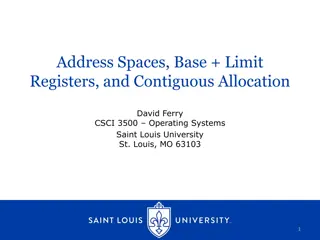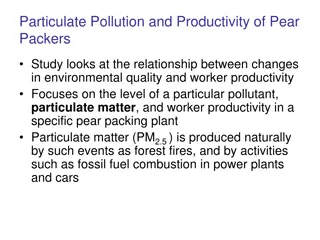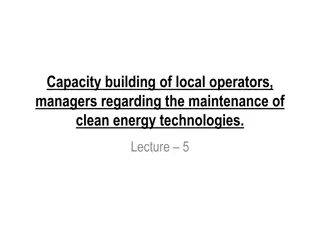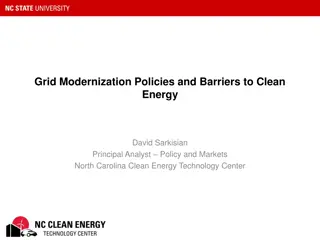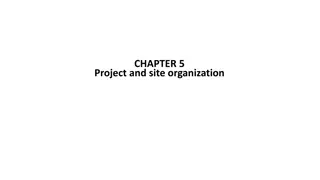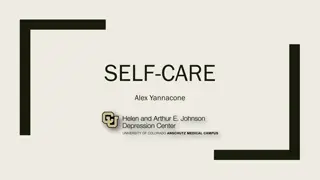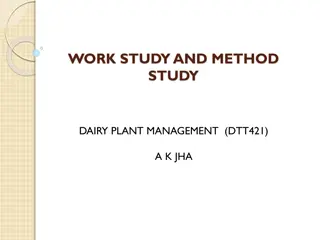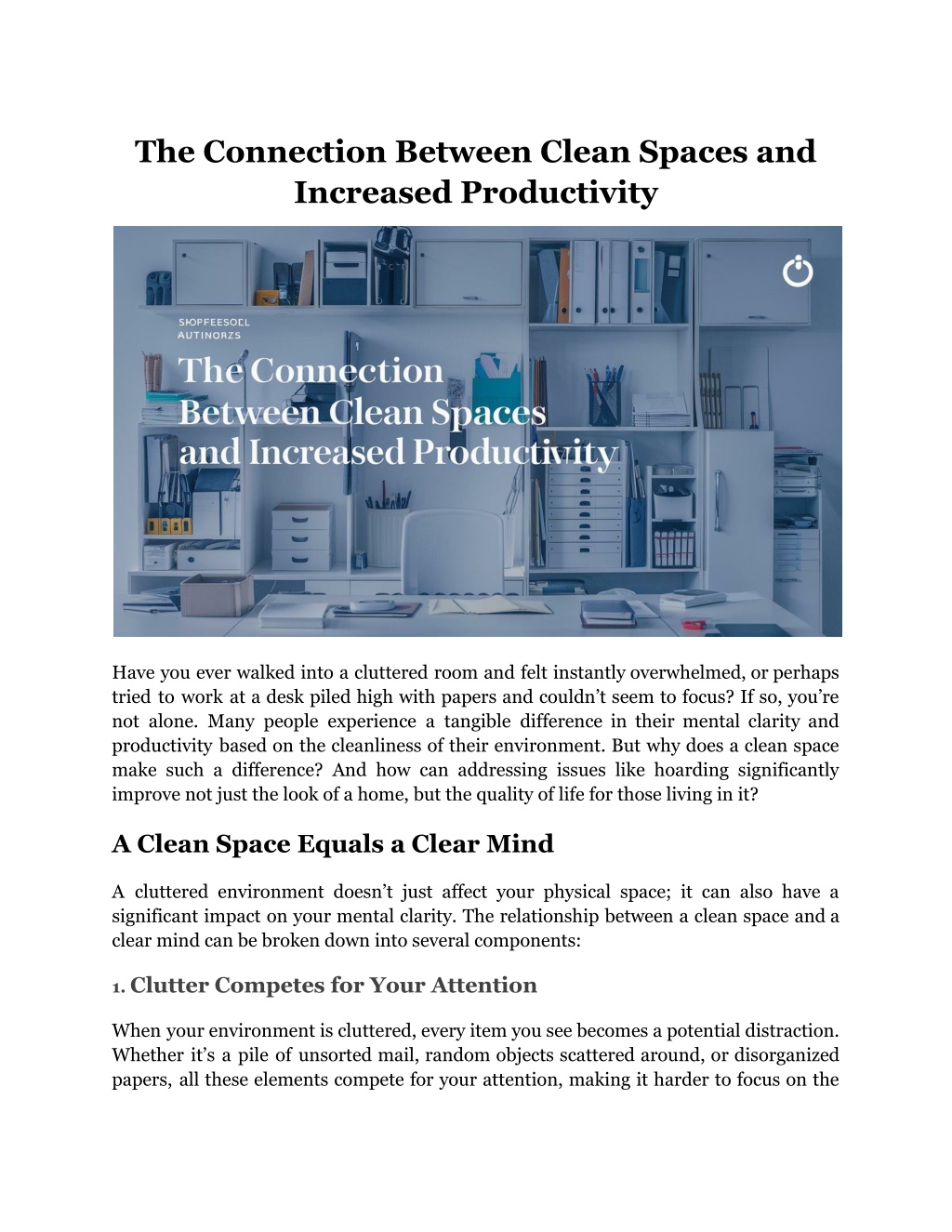
The Connection Between Clean Spaces and Increased Productivity
Discover how a tidy workspace can enhance your productivity and focus. Simple tips for a cleaner, more efficient environment.
Download Presentation

Please find below an Image/Link to download the presentation.
The content on the website is provided AS IS for your information and personal use only. It may not be sold, licensed, or shared on other websites without obtaining consent from the author. Download presentation by click this link. If you encounter any issues during the download, it is possible that the publisher has removed the file from their server.
E N D
Presentation Transcript
The Connection Between Clean Spaces and Increased Productivity Have you ever walked into a cluttered room and felt instantly overwhelmed, or perhaps tried to work at a desk piled high with papers and couldn t seem to focus? If so, you re not alone. Many people experience a tangible difference in their mental clarity and productivity based on the cleanliness of their environment. But why does a clean space make such a difference? And how can addressing issues like hoarding significantly improve not just the look of a home, but the quality of life for those living in it? A Clean Space Equals a Clear Mind A cluttered environment doesn t just affect your physical space; it can also have a significant impact on your mental clarity. The relationship between a clean space and a clear mind can be broken down into several components: 1.Clutter Competes for Your Attention When your environment is cluttered, every item you see becomes a potential distraction. Whether it s a pile of unsorted mail, random objects scattered around, or disorganized papers, all these elements compete for your attention, making it harder to focus on the
task at hand. This isnt just a matter of personal preference, science supports this phenomenon. Studies from the Princeton University Neuroscience Institute have shown that clutter limits your brain s ability to process information. When your mind is forced to divide its attention between multiple stimuli, such as visual clutter, it struggles to maintain focus on what truly matters, resulting in decreased performance and increased stress levels. Read More Articles: Why A Neat Environment Makes Us Happier? 2. Mental Clutter Leads to Overwhelm Physical clutter often translates into mental clutter. When your environment is chaotic, it can create a sense of overwhelm that makes it difficult to start or complete tasks. This mental clutter can lead to procrastination, as the thought of tackling any task in such a disorganized space becomes daunting. For individuals struggling with hoarding, this sense of overwhelm is magnified. The sheer volume of items and the lack of organization can make even the simplest tasks feel insurmountable. As a result, services like LifeCycle Transitions understand the profound impact that a clean, organized space can have on a person s productivity and overall well-being. Hoarding cleaning experts are not just about clearing out spaces, they're about clearing the mind, providing the mental clarity needed to make better decisions and increase productivity. 3. A Clean Space Reduces Stress There s something inherently calming about walking into a clean, organized space. Your brain can relax and focus on the present moment, reducing stress and anxiety without the distraction of clutter. This reduction in stress is crucial for maintaining mental clarity and productivity, as high stress levels can severely impair cognitive function. Health Benefits of a Clean Environment Maintaining a clean environment is essential not only for mental clarity but also for physical health. The benefits are extensive, and they are: 1. Respiratory Health Cluttered and dirty environments are often breeding grounds for dust, mold, and other allergens. These elements can contribute to respiratory issues such as asthma, allergies, and other chronic conditions. By keeping spaces clean, the air quality improves, reducing the likelihood of these health problems.
Dust Reduction: Regular cleaning removes dust particles that can irritate the respiratory system. Mold Prevention: Keeping areas dry and clutter-free helps prevent mold growth, which can cause serious respiratory issues. 2. Reduced Risk of Illness A clean environment minimizes the presence of germs, bacteria, and other pathogens that can lead to illness. Regular sanitization, especially in kitchens and bathrooms, is crucial in preventing infections and promoting overall health. Germ Control: Regular cleaning reduces the spread of germs, leading to fewer illnesses. Sanitization: Keeping high-touch areas clean helps prevent the spread of bacteria and viruses. 3. Improved Energy Levels When your space is clean, your body doesn't have to work as hard to fight off allergens and germs. This can lead to better overall health and more energy to focus on your daily tasks. A clutter-free environment also reduces stress, contributing to higher energy levels and a more positive outlook on life. Better Air Quality: Clean air leads to better oxygen intake, which can improve energy levels. Less Stress: A clean environment reduces stress, which in turn boosts energy and productivity. The Impact of Clean Workspaces on Job Performance When it comes to the workplace, the connection between cleanliness and productivity becomes even more evident. A cluttered desk, chaotic files, or an untidy office can create distractions that pull your focus away from work, resulting in lower efficiency and higher stress levels. Consider the benefits of a clean workspace: 1. Increased Focus: You can find what you need quickly with a tidy desk and organized files, allowing you to stay on task and complete work more efficiently. 2. Reduced Stress: A clean workspace reduces visual stressors, helping you feel more in control and less overwhelmed.
3. Enhanced Professionalism: A neat and organized work area reflects positively on you, creating a professional image that can lead to better relationships with colleagues and clients. How Cleanliness Impacts Emotional Well-Being Beyond productivity and physical health, the cleanliness of your environment plays a significant role in your emotional well-being. Living or working in a cluttered space can lead to feelings of anxiety, frustration, and even depression. On the other hand, a clean and organized space promotes feelings of calm, control, and happiness. For those dealing with hoarding, the emotional impact of clutter is profound. The overwhelming nature of the clutter can lead to feelings of hopelessness and despair. However, once the space is cleaned and organized, there is often a noticeable shift in emotional state. People feel lighter, more in control, and more hopeful about the future. Here are some of the emotional benefits of a clean space: 1. Increased Calmness: A clean space reduces visual noise, helping to create a serene environment that fosters relaxation and calm. 2. Improved Mood: The act of cleaning itself can be therapeutic, and the result is a clean space that can significantly improve your mood. 3. Greater Sense of Control: Organizing your environment gives you a sense of accomplishment and control over your life, which boosts confidence and reduces anxiety. The Role of Cleaning Services in Transforming Lives Hoarding is a complex issue that goes beyond simple messiness as it's a condition that can take a significant toll on a person s mental, physical, and emotional well-being. That s why cleaning services are so important. They offer more than just cleaning; they provide a pathway to a better life. The benefits of using professional services include: 1. Comprehensive Cleaning: Professional cleaners have the tools and expertise to handle even the most challenging hoarding situations, ensuring that the space is thoroughly cleaned and sanitized. 2. Emotional Support: The process of decluttering can be emotionally taxing. Professional services often include emotional support, helping clients cope with the stress and anxiety that can accompany the cleanup.
3. Long-Term Solutions: Beyond the initial cleanup, professional services can help establish systems and routines to maintain a clean and organized space, preventing the return of clutter. Read More Articles: Are Hamilton Watches Value for Money? Practical Tips for Maintaining a Clean Space Now that we ve established the importance of a clean space, how can you maintain it in your daily life? Here are some practical tips: 1. Declutter Regularly: Set aside time each week to go through your belongings and get rid of anything you no longer need. This will prevent clutter from building up over time. 2. Establish a Cleaning Routine: Regular cleaning doesn t have to be a chore. Break it down into manageable tasks and spread them out over the week to keep your space consistently clean. 3. Organize with Purpose: Use storage solutions that work for your lifestyle. Invest in bins, shelves, and organizers that make it easy to keep everything in its place. 4. Seek Professional Help When Needed: If you re dealing with significant clutter or hoarding, don t hesitate to reach out for professional help. Hoarding cleaning services can provide the support you need to regain control of your space. Final Call Whether at home or in the workplace, a clean and organized space can significantly boost productivity, reduce stress, and improve your overall quality of life. By prioritizing cleanliness and organization, you can cultivate a healthier, more productive, and happier life. At LifeCycle Transitions, we specialize in helping individuals and families navigate the difficult process of hoarding cleanup. Our approach is compassionate and thorough, ensuring that the needs of our clients are met with respect and understanding. By addressing the physical clutter, we help clear the path for mental and emotional healing as well. Site Productivity Article: The Connection Between Clean Spaces and Increased





